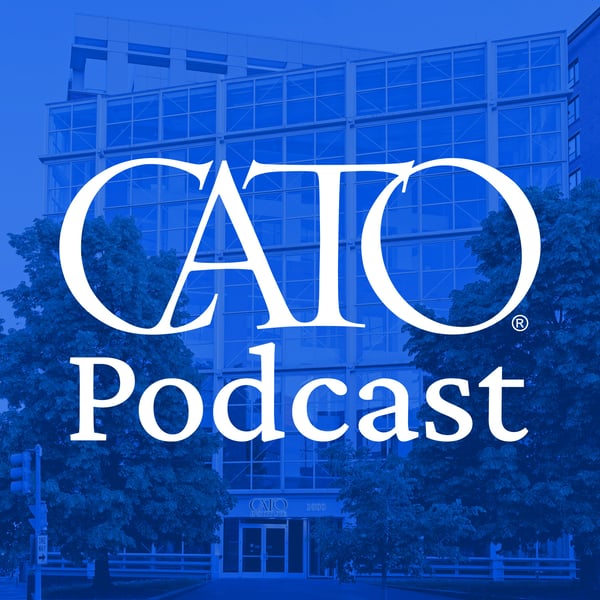Best of Cato Daily Podcast: Rights, Powers and the Libertarian Vision
Cato Podcast
Cato Institute
4.6 • 949 Ratings
🗓️ 6 May 2025
⏱️ 14 minutes
🧾️ Download transcript
Summary
Hosted on Acast. See acast.com/privacy for more information.
Transcript
Click on a timestamp to play from that location
| 0:00.0 | This is longtime Cato Daily podcast host, Caleb Brown. After thousands of episodes over nearly 18 years, I've moved on from the Cato Daily podcast, but in the interim, I, along with some of you, have selected some favorites. I hope they resonate with our current moment and continue to spark the desire to defend liberty. Thank you for listening. |
| 0:21.2 | This is the Cato Daily podcast for Friday, August 13th, 2010. I'm Caleb Brown. There are many |
| 0:27.2 | differences among liberals, conservatives and libertarians in terms of political philosophy. The |
| 0:32.6 | proper role of government in our lives is chief among them. Cato Institute Chairman Bob Levy, speaking at Cato University in California, |
| 0:40.6 | detailed these differences and provided the key insight to the U.S. Constitution. |
| 0:46.3 | I want to set a framework and some brief comments on liberals and conservatives |
| 0:51.6 | and how their views of the Constitution and public policy differ |
| 0:55.9 | from the libertarian views embraced by my colleagues at the Cato Institute. |
| 1:01.7 | Of course, when I talk about libertarianism, as this audience certainly knows, I'm not talking |
| 1:05.6 | about the libertarian political party, but to libertarianism as a political philosophy that focuses on |
| 1:13.6 | free markets and private property, individual liberty, and strictly limited government. |
| 1:18.5 | So we don't endorse candidates, as you know, at Cato or endorse parties. |
| 1:24.0 | And as you're going to assume here, we're equally critical of both the Democrats and the Republicans. |
| 1:29.4 | What we do have is a consistent, I'd call it a minimalist view of the proper role of government. |
| 1:34.7 | Conservatives will agree with us on some issues, domestic, economic, regulatory, |
| 1:38.7 | tax, fiscal issues, liberals on other issues, social issues, immigration, some foreign policy issues. Now, the reason |
| 1:46.5 | for that disagreement is because liberals and conservatives both have, I think, an inconsistent |
| 1:52.0 | view of public policy and the law. And to illustrate that inconsistency, I want to posit this |
| 1:59.3 | framework, and that is the final two provisions of the |
| 2:02.9 | Bill of Rights. If you understand the 9th and 10th Amendment, you understand the structure of the |
| 2:07.3 | Constitution, and you understand the framework of the federal government. The 10th Amendment, as you |
| 2:12.3 | heard, tells us that government, the national government, can only exercise the powers that are |
... |
Please login to see the full transcript.
Disclaimer: The podcast and artwork embedded on this page are from Cato Institute, and are the property of its owner and not affiliated with or endorsed by Tapesearch.
Generated transcripts are the property of Cato Institute and are distributed freely under the Fair Use doctrine. Transcripts generated by Tapesearch are not guaranteed to be accurate.
Copyright © Tapesearch 2025.

